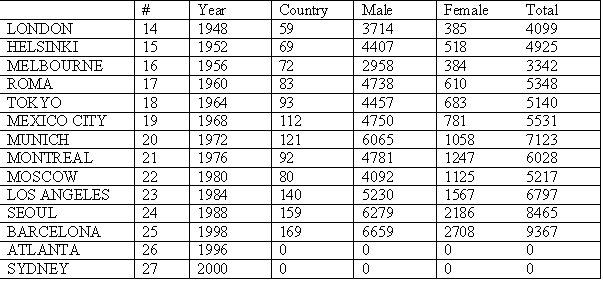Re-establishment of the Olympic Games Transition Period
. Olympics idea in the Theatre Stages
. “Games of Devil”
. Renaissance and Olympic Idea
. “Olympic Games” in England (17 th Century)
. Local Olympics in Greece (185
9, 1870 and 1888)
. “Olympics” as a Part of the History
Olympics Games
First Period (1896 – 1912 )
Second Period (1920-1936)
Third Period (1948-2000)
International Olympic Committee
The IOC was created by the congress of Paris of 23 rd June 1894.
It was a body corporate by international law having juridical status and perpetual succession. Its headquarters are in Switzerland.
It is not formed for profit and its aims are:
. To encourage the organization and development of sports and sports competitions,
. To inspire and lead sport within Olympic ideal, thereby promoting and strengthening friendship between the sportsmen of all countries,
. To ensure the regular celebration of the Olympic Games,
. To make the Olympic Games ever more worthy of their glorious history and of the high ideals which inspired their revival by Baron Pierre de Coubertin and his associates.
Members of the IOC are representatives of the IOC in their countries.
PHILOSOPHY OF OLYMPISM
Olympics have their philosophy which, together with the development of physical skills, aims at improving the mind, thus leading to harmonious and symmetrical formation and improvement of human.
Olympic embraces world society without any discrimination. It does not appeal to one group or class of people, a race or a given nation, but to all human beings of the world
The essence of the philosophy of Oly mp i s m is the education of man at the social, cultural and national level. The development of an independent, free, well balanced and strong-willed human being.
Olympic Movement Philosophy
Primary source of Olympic Movement: Olympic Games
Other Activities of the Olympic Movement
. Promotion of sport and Competitions
. Cooperation with public and private organizations
. Encouragement of the development of “Sport for All”
. Promotion of Women in Sport at all Levels and Structures
Olympic Movement Philosophy
“ The main purpose of the IOC and the Olympic Movement is to contribute to building a peaceful and better world by educating youth through sport, practiced without discrimination of any kind and in the Olympic Spirit, which requires mutual understanding, friendship, solidarity and fair play.”
Re-establishment of the Olympic Games
“ The important thing in the Olympic Games is not winning but taking part. The essential thing in life is not conquering but fighting well”.
Barron de Coubertin
OLYMPIC MOVEMENT PHILOSOPHY
Using competitive Sport as a member as a Means of developing a healthy body, providing entertainment and also education.
A philosophy teaching humans “Fair Play”
The Olympic Movement as a Means of promoting world peace
Re-Establishment of the Olympic Games
Barron Pierre de Coubertin (1863-1937)
. Ideas in 1889
. “International Athletic Congress” in 1894:
1. Four Year Period
2. Open to Everybody Including the Popular Sports
3. Only Adults
4. “Amateurism” Rules
5. Mobile Organization
. Establishment of IOC (International Olympic Committee)
Olympic Games ( 1)
First Period 81896 – 1912 )

•Mid Olympic Games
Olympic Games (2)
Second Period (1920 – 1936)

Olympic Games ( 3)
Third Period (1948 -2000)

Some Facts and Comments
• No team games or team sports in Old Olympics
• Dramatisation of connection and continuity through time and space with
Olympic Torch
• 20 th century Religion: Olympism
• propagation of the Political Message via Modern Games : “ Peace
in the World”
• contests Between individuals or contests between nations?
Some Facts & Comments
Selection of the Olympic Games Host City
Istanbul example for the 2000 Summer Games
Accommodation
Transportation
Competition Sites
Media and Telecommunications
Financial Conditions
Legal & Political Aspects
PES 415 HISTORY AND PHILOSOPHY OF PHYSICAL EDUCATION
AND SPORTS



